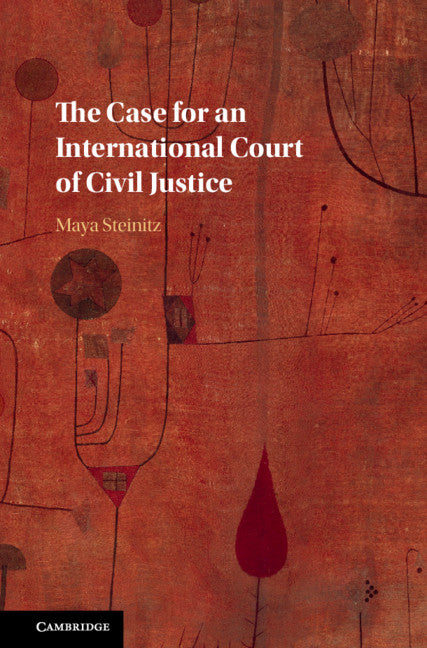Freshly Printed - allow 8 days lead
Couldn't load pickup availability
The Case for an International Court of Civil Justice
An International Court of Civil Justice would give victims of multinationals a day in court while offering corporate defendants a cheaper, fairer litigation alternative.
Maya Steinitz (Author)
9781107162853, Cambridge University Press
Hardback, published 6 December 2018
254 pages
23.4 x 15.7 x 1.7 cm, 0.48 kg
'Steinitz's book is a must-read for those interested in transborder mass torts litigation and in the current business and human rights debate. Readers will find a convincingly argued, wellthought-through and practical proposal on resolving a grave concern for human rights protection before a new international court.' Stephan W. Schill, American Journal of International Law
When multinational corporations cause mass harms to lives, livelihoods, and the environment in developing countries, it is nearly impossible for victims to find a court that can and will issue an enforceable judgment. In this work, Professor Maya Steinitz presents a detailed rationale for the creation of an International Court of Civil Justice (ICCJ) to hear such transnational mass tort cases. The world's legal systems were not designed to solve these kinds of complex transnational disputes, and the absence of mechanisms to ensure coordination means that victims try, but fail, to find justice in country after country, court after court. The Case for an International Court of Civil Justice explains how an ICCJ would provide victims with access to justice and corporate defendants with a non-corrupt forum and an end to the cost and uncertainty of unending litigation - more efficiently resolving the most complicated types of civil litigation.
Introduction
1. How new international courts come into being
2. The stories behind the cases: the Bhopal disaster, the devastation of the Ecuadorian Amazon, and the abuse and murder of Dr Kiobel
3. The problem of the missing forum
4. The business case for the ICCJ
5. Institutional and procedural features of an ICCJ
Conclusion.
Subject Areas: Laws of Specific jurisdictions [LN], International organisations & institutions [LBBU], International economic & trade law [LBBM], Treaties & other sources of international law [LBBC], Public international law [LBB], International law [LB], Law [L], United Nations & UN agencies [JPSN1], International relations [JPS]


